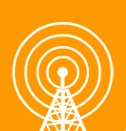« Home | Joint Communications' Look Back At 2006 & A Look A... »
BlogTalkRadio: A buzz-building new radio format for "citizen broadcasters"?
 Through new podcasting software (like iPodder or Loudblog, broadband and communication tools like Skype, there's a new radio format emerging and it's not on your regular receiver in the car. It's online. It's called Blog Talk Radio and it's forming a new radio network on the Internet.
Through new podcasting software (like iPodder or Loudblog, broadband and communication tools like Skype, there's a new radio format emerging and it's not on your regular receiver in the car. It's online. It's called Blog Talk Radio and it's forming a new radio network on the Internet.
Will it expand to Internet radios in cars through WiMax? Is it a new form of social media, post-blogging, post-vlogging, post-lonelygirl15? Is it a new radio response to Al Gore's Current TV?
If ever there was a natural fit between Google's dMarc radio ad-placing service, this is a good one.
It's something to media trend watch, or at least listen to... A new online radio blogging network, BlogTalkRadio.com, has been adding hosts -- and listeners -- at a steady clip since its launch in August. With its innovative, surprisingly simple system, BlogTalkRadio lets anyone become a live radio host. Text bloggers publicly platform on their soapbox via the spoken word. The service is free to users, who share in the ad revenue.
A new online radio blogging network, BlogTalkRadio.com, has been adding hosts -- and listeners -- at a steady clip since its launch in August. With its innovative, surprisingly simple system, BlogTalkRadio lets anyone become a live radio host. Text bloggers publicly platform on their soapbox via the spoken word. The service is free to users, who share in the ad revenue.
According to Alan Levy, the founder and CEO of BlogTalkRadio, the live broadcasts are available as RSS feeds and can also be archived, recreating text blogs' chronological content trail in auditory form.
According to Mediapost.com:In the BlogTalkRadio system, each host gets a personal "switchboard" page on BlogTalkRadio.com that functions as their radio "home" on the Net. Hosts can drive traffic to their radio home pages by posting an html link on their blogs, and vice versa. Technically, radio bloggers don't even need a computer to participate. Their audio feed is delivered to the BlogTalkRadio server via a simple phone call, and listeners can call in. However, listeners need a computer to hear the streaming audio broadcast.
Can traditional radio create the same model -- only better and bigger? Should it?
BlogTalkRadio monetizes the service by placing ads on each host's switchboard page -- which listeners must visit to receive streaming audio of the show -- then splits the revenue 50-50 with hosts, or "citizen broadcasters," as Levy calls them. You bet. It's sound future "cluster management", providing plenty of opportunity for user-generated listener content to blend with mainstream mass media. Listeners to local stations can create content inspired by radio listening and Internet-surfing for viral video and audio, making something new in their own show, which radio stations can then play on their own airwaves within primetime shows or even on speciality weekend shows -- the essence of content demand of the new "mashmedia" generation.
You bet. It's sound future "cluster management", providing plenty of opportunity for user-generated listener content to blend with mainstream mass media. Listeners to local stations can create content inspired by radio listening and Internet-surfing for viral video and audio, making something new in their own show, which radio stations can then play on their own airwaves within primetime shows or even on speciality weekend shows -- the essence of content demand of the new "mashmedia" generation.
posted by Unknown @ Sunday, December 03, 2006,
![]()
![]()















